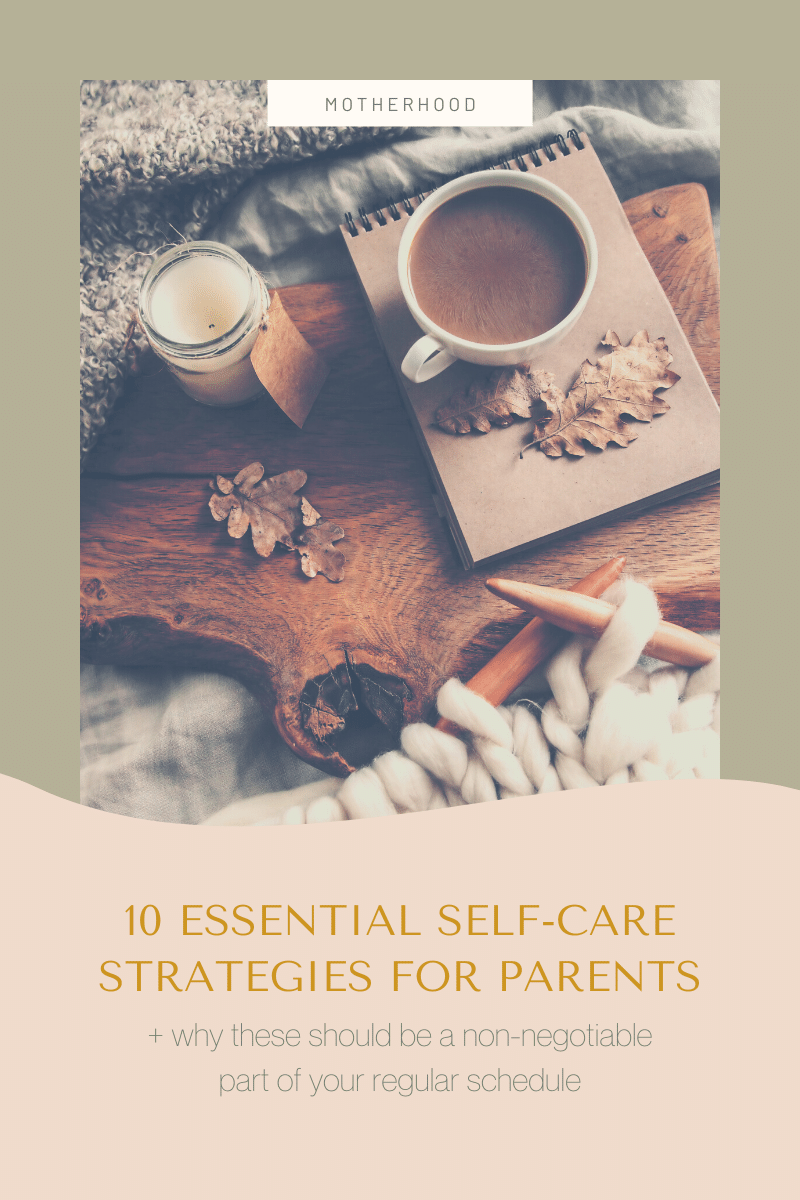10 Simple but Essential Self-Care Strategies for Every Parent
The term ‘self-care’ gets a bit of a bad rap. It’s often associated with occasional seemingly indulgent behaviours, such as massages or spa breaks. But, certainly in the mental health field, that is not how we define it. We think of self-care as any activity that you intentionally do in order to take care of your mental, emotional, and physical health. Such behaviours typically result in a sense of care, pleasure or meaning. Self-care is an act of self-compassion. It is an essential, non-negotiable cluster of actions we need in order for our mental health to thrive.
SELF-CARE + PARENTING
When we become a parent, our usual repertoire of self-care behaviours often gets de-prioritised, due to lack of time, energy, finances, a sense of guilt for putting your needs first or a lack of belief in the importance of self-care. These obstacles need to be overcome (and are often an early focus in therapy), in order for parents to commit to and intentionally action behaviours which consciously care for their mental health.
SELF-CARE + GUILT
A lot of parents struggle with feelings of guilt for prioritising their needs. Negative self-talk & labelling, such as being a “bad mum” or “selfish” for taking time for yourself, not only robs you of the joy and meaning that could derive from the self-care behaviour, but also makes it less likely you’ll engage in similar behaviours again. In addition, such negative self-talk perpetuates feelings of low mood, anxiety, guilt and shame.
BUT SELF-CARE IS SELFISH … RIGHT?
Wrong! The research and clinical evidence is clear; a parents’ mental health has a significant impact on the quality of parenting and on the psychological wellbeing of their children. Replenishing your “emotional fuel” is an essential, non-negotiable parenting skill, which enables you to better attend to the needs of your children.
“Put on your own oxygen mask first! Take care of you, so you can take care of them”
10 TOP SELF-CARE STRATEGIES FOR EVERY PARENT
There are many ways to care for yourself; what’s important is identifying and actioning strategies which are meaningful and enjoyable to you. This might require a bit of trial and error. The things you found valuable pre-parenthood may no longer be effective or available to you now. Experiment with different strategies, be flexible and creative to find the ones which work best for you and your family’s needs and lifestyle. Below are ten of my favourite ways (personally and clinically) in which you can nurture your emotional health and wellbeing. You can read more about each of these in detail in an article I published on Sassy Mama HK
01 | identifying and acting on your values
02 | take time-out
03 | address guilt
04 | practice self-compassion
05 | acknowledge your achievements
06 | be mindful
07 | connect with others
08 | nurture your relationship
09 | move
10 | connect with your inner child
Do you struggle with mum guilt? Ever feel that you're not good enough? That you're failing as a mum?
If so, know that I see you. I've been there too. Mum guilt is one of the most universal maternal experiences. I’ve created a free workbook, The Mum Guilt Manual, to empower mums (like you and I) to overcome feelings of guilt and build your self-compassion. You can download it for free below.
want to learn more about self-care?
If you found this article useful, you may also like to read:
Self-Care Matters Because You Matter - where I dive into the difference between proactive and reactive self-care (you need both!) &, in case you need convincing, outline the key benefits of treating yourself with kindness and care.
Value-Based Self-Care: What it is and Why you need it - where I share a simple but effective three-step strategy for identifying your why. Establishing clarity on this will help to cultivate motivation and a more consistent and committed practice of self-care. Thus, more benefits!
5 Common Myths About Self-Care - including realistic reframes you can use when they show up and try to sabotage your self-care practice.
For more clinical psychology strategies and resources, sign up to my fortnightly newsletter, Unfrazzled, your go-to source for refuge in the chaos. Each edition curates a blend of psychological insights, practical tips, and inspiration to help you untangle the knots of modern life ⋒

